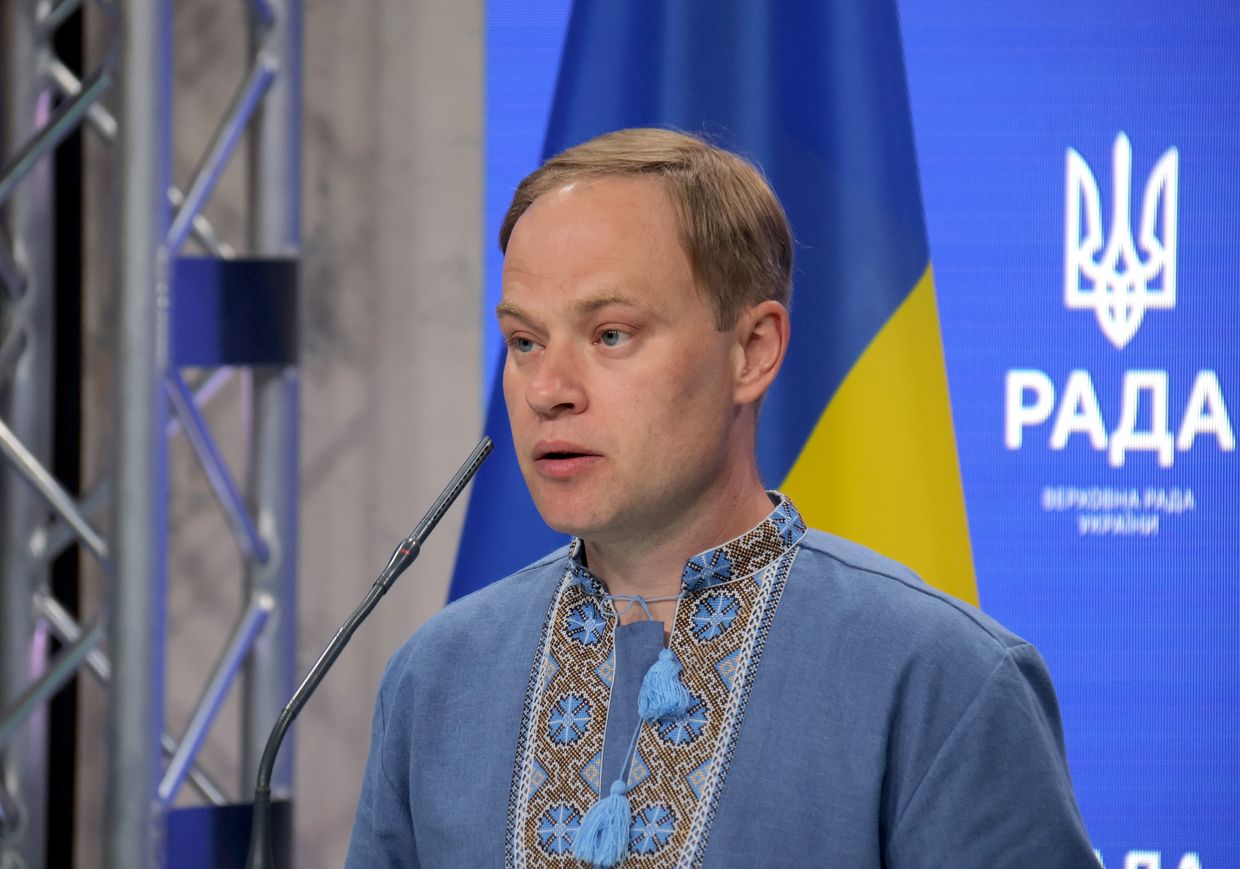US Senator Lindsey Graham criticises Zelensky's signing of controversial anti-corruption law

Editor's note: This item has been updated to include additional details.
A controversial law signed by President Volodymyr Zelensky that effectively destroys the independence of Ukraine's two key anti-corruption institutions risks "undermining" the country's progress made over the last decade, U.S. Republican Senator Lindsey Graham said on July 23.
"Ukraine has made enormous strides on its anti-corruption agenda since the (2014) Revolution of Dignity," he said in a joint statement with Democratic Senator Jeanne Shaheen.
"The Verkhovna Rada’s recent passage of a law, signed by President Zelensky, we fear undermines much of that progress and goes against Ukraine’s tremendous fighting spirit as well as the expectations of Ukraine’s citizenry and the international community," they added.
On July 22, the Ukrainian parliament approved amendments that grant the prosecutor general new powers over cases led by the Specialized Anti-Corruption Prosecutor's Office (SAPO) and investigations led by the National Anti-Corruption Bureau of Ukraine (NABU).
President Volodymyr Zelensky later that day signed the bill into law, effectively destroying the independence of Ukraine's two key anti-corruption institutions, opposition lawmakers and watchdogs say.
Graham urged Kyiv to reconsider the law, as "one of the most widely used talking points for ending support for Ukraine is that it was awash with corruption."
"We acknowledge that Ukraine continues to make progress on this front and we urge the government to refrain from any actions that undermine that progress."
Graham is a significant voice in U.S. politics for Ukraine as he has authored a Russian sanctions bill that would impose 500% tariffs on imports from countries purchasing Russian oil, gas, uranium, and other products.
At least 82 U.S. senators are prepared to vote for the bill, he has said previously.
On July 23-24, protestors gathered in major cities across the country, including Kyiv, Lviv, Dnipro, and Odesa, with growing calls urging the government to amend current laws.
Ukrainians who spoke to the Kyiv Independent sounded a code red for the country's democracy, saying the move marked the "point of no return."
Kyiv's Western allies tried to dissuade the Ukrainian president from signing the controversial bill, the Financial Times reported, citing sources familiar with the matter.
On July 22, European Council President Antonio Costa and French President Emmanuel Macron reportedly held a phone call with Zelensky, urging him to reconsider his decision.
In the latest development in Kyiv, Zelensky announced on July 24 that he had approved the text of a new draft law aimed at strengthening the rule of law and the independence of Ukraine's anti-corruption institutions, promising to submit it to parliament the same day.
Earlier that day a cross-party group of 48 lawmakers submitted a bill to the Verkhovna Rada aimed at restoring the independence of key anti-corruption agencies, Yaroslav Yurchyshyn, head of the parliamentary committee on freedom of speech, said.
U.K. Prime Minister Keir Starmer proposed involving experts to help draft legislation aimed at safeguarding the independence of Ukraine's anti-corruption institutions, Zelensky said following their July 24 phone call.
"Keir offered to engage experts who could be useful for long-term cooperation. We agreed to keep in touch on this issue," Zelensky wrote on Telegram.
Zelensky also held a phone call with German Chancellor Friedrich Merz on July 24, during which he said he informed Merz about approving the text of a new draft law intended to ensure the independence of Ukraine's anti-corruption institutions.
"It is important that anti-corruption agencies support this draft law. We all agreed that there should be no interference or influence from Russia on the work of our anti-corruption infrastructure," Zelensky wrote.
The Ukrainian president claims that the purpose of the law dismantling Ukraine's anti-corruption infrastructure was to curtail Russian influence.
However, the law passed and signed on July 22 does not have anything to do with Russian influence. Its clauses deprive anti-corruption agencies of their independence, and there is nothing in the law that targets Russian agents in or outside the agencies.
"The clause that the prosecutor general can take cases away from the National Anti-Corruption Bureau (NABU) is unlikely to have an impact on (Russian agents)," Kateryna Butko, head of the anti-corruption watchdog AutoMaidan, told the Kyiv Independent.
On July 23, Zelensky said Ukraine's law enforcement and anti-corruption institutions will present a joint action plan within two weeks aimed at strengthening the justice system.













